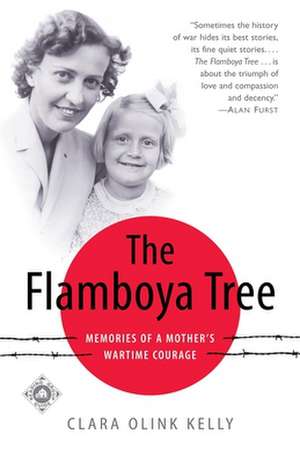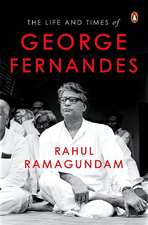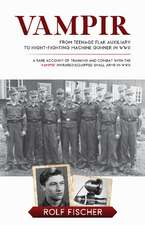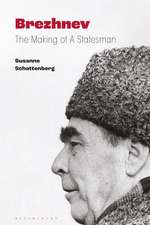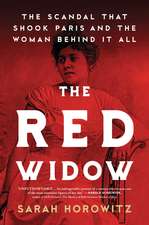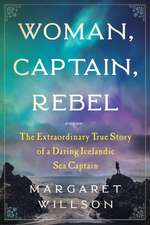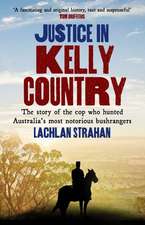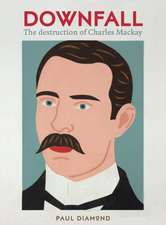The Flamboya Tree: Memories of a Mother's Wartime Courage
Autor Clara Olink Kellyen Limba Engleză Paperback – 31 mar 2003
—Elizabeth M. Norman, author of We Band of Angels: The Untold Story of American Nurses Trapped on Bataan by the Japanese
“It is a well-known fact that war, any war, is senseless and degrading. When innocent people are brought into that war because they happen to be in the wrong place at the wrong time, it becomes incomprehensible. Java, 1942, was such a place and time, and we were those innocent people.”
Fifty years after the end of World War II, Clara Olink Kelly sat down to write a memoir that is both a fierce and enduring testament to a mother’s courage and a poignant record of an often overlooked chapter of the war.
As the fighting in the Pacific spread, four-year-old Clara Olink and her family found their tranquil, pampered lives on the beautiful island of Java torn apart by the invasion of Japanese troops. Clara’s father was taken away, forced to work on the Burma railroad. For Clara, her mother, and her two brothers, the younger one only six weeks old, an insistent knock on the door ended all hope of escaping internment in a concentration camp. For nearly four years, they endured starvation, filth-ridden living conditions, sickness, and the danger of violence from their prison guards. Clara credits her mother with their survival: Even in the most perilous of situations, Clara’s mother never compromised her beliefs, never admitted defeat, and never lost her courage. Her resilience sustained her three children through their frightening years in the camp.
Told through the eyes of a young Clara, who was eight at the end of her family’s ordeal, The Flamboya Tree portrays her mother’s tenacity, the power of hope and humor, and the buoyancy of a child’s spirit. A painting of a flamboya tree—a treasured possession of the family’s former life—miraculously survived the surprise searches by the often brutal Japanese soldiers and every last-minute flight. Just as her mother carried this painting through the years of imprisonment and the life that followed, so Clara carries her mother’s unvanquished spirit through all of her experiences and into the reader’s heart.
From the Hardcover edition.
Preț: 90.11 lei
Nou
Puncte Express: 135
Preț estimativ în valută:
17.24€ • 18.00$ • 14.24£
17.24€ • 18.00$ • 14.24£
Carte disponibilă
Livrare economică 25 martie-08 aprilie
Preluare comenzi: 021 569.72.76
Specificații
ISBN-13: 9780812966855
ISBN-10: 0812966856
Pagini: 240
Ilustrații: CHAPTER-OPENING PHOTOS
Dimensiuni: 142 x 216 x 18 mm
Greutate: 0.31 kg
Ediția:Rh Trade Pbk
Editura: Random House Trade
ISBN-10: 0812966856
Pagini: 240
Ilustrații: CHAPTER-OPENING PHOTOS
Dimensiuni: 142 x 216 x 18 mm
Greutate: 0.31 kg
Ediția:Rh Trade Pbk
Editura: Random House Trade
Notă biografică
Clara Olink Kelly lives in Bellingham, Washington, with her husband. When she is not painting or creating other artwork, she loves nothing better than to spend time with her children and grandchildren. The Flamboya Tree is her first book.
From the Hardcover edition.
From the Hardcover edition.
Extras
Chapter 1
Holland, 1946
"Why didn't you try to escape?"
That was all she said. Not "Thank God you made it. Now you are safe."
"Why didn't you try to escape?"
Why was she saying that? She was supposed to be so happy to see us. I saw again in my mind's eye the barbwire fences and the soldiers with their glistening bayonets, and felt once more that excruciating fear in the pit of my stomach. Try to escape? Lots of people had tried to escape.
I pushed the brutal memory from my mind. How long had we lived for this very moment? Through all those years, the words "when we get back to Holland" had sustained us. There had been no doubt in our minds that one day we would return to Holland to meet aunts and uncles, as well as cousins our own age. We had talked about celebrations with real cakes, and cookies, and lemonade. It was going to be such a happy time. I had imagined my grandmother telling us how lovely it was to see us at last. How big we'd grown, how pretty and handsome we looked. We had never met her, though we had heard so many wonderful tales about her. And now here we were in Holland, standing on her doorstep, and all we could do was stare at one another as though we were all waiting for something very special to happen.
Why hadn't we tried to escape?
It felt like a rebuke. We must not have tried hard enough. I looked over at my mother, wanting to protect her from the harsh words. My poor, sweet mother was obviously in a lot of pain, standing there on her infected, swollen legs. Sometimes she could hardly walk on them, let alone run. And wasn't that what you did when you tried to escape-run? Run as fast as you could? Glancing back at my grandmother, I began to feel very uncomfortable. She was standing there studying each of us in turn. Our pasty yellow skin and sunken eyes. Our bones sticking out through our worn, donated clothes. And worst of all, our filthy, lice-infested heads. She saw it all, and her eyes welled with tears.
My mother, my two brothers, Willem and Gijs, and I had only that day returned to Holland, my mother's homeland, after spending more than three and a half years in a Japanese concentration camp in Indonesia. We were not a pretty sight, and we had caught my grandmother completely off guard.
The ambulance drivers who had brought us here from the boat finally broke the awkward silence. They were still carrying the stretcher on which my oldest brother, Willem, lay covered with blankets. He was extremely ill with double pneumonia, and they were anxious to get him out of the damp, chilly air. My grandmother pulled herself upright and immediately motioned us all to come into the house. Gijs and I held tightly on to each other's hands and followed closely behind our mother as she hobbled painfully up the stone steps. Her beriberi was so bad by this time that she could probably not have survived more than a few months longer in the concentration camp.
"Is this another camp?" Gijs asked once we were inside and he had looked all around. "Where are the other people?"
Having been born just weeks before we were interned, he had grown up in the camps and had known only those overcrowded, filthy conditions as the way of life. This large, empty house was alien to him, as well as to me. We expected a horde of people to appear from every doorway.
As we milled around in the spacious hall, my grandmother asked the ambulance men to follow her upstairs with the stretcher so Willem could be put to bed. She was taken aback when Willem protested vehemently. Sick as he was, he was desperately trying to get off the stretcher to stay with us. My mother rushed to his side to reassure him and asked that he be allowed to lie in the same room where we would all be. Our many years of living in fear now made us want to stick close together.
While all this was going on, Gijs and I glanced nervously up the curving staircase to watch for anyone else up there. We could not believe that our grandmother lived all alone in such a big house. Our grandfather had died when our mother was just a young girl.
Many doorways opened off the hallway. Oriental carpets covered the hardwood floors, and ornate polished furniture filled the rooms. Everything shone and sparkled with a cleanliness unknown to us, as we had concentrated on simply staying alive. In the living room, little tables covered in pretty embroidered cloths stood ready to serve dainty sweets and teas from silver teapots. Our eyes focused immediately on the sugar lumps in the silver bowl.
"You may take one," our grandmother said with a smile. But I didn't dare. It was Gijs who quickly reached over and ravenously grabbed three, one for each of us.
"My God, what happened to you?" was all our grandmother could whisper as she shook her head in disbelief.
We watched her silently from a safe distance. Our mother gave a big sigh and stared out of the window. "Let me relax for a while," she said, "then I will try to explain."
It was obviously very difficult for my grandmother to accept our appalling condition, and she must have wanted to do something straightaway to rectify the injustices and hurts inflicted on her family by a cruel war. We must have seemed so unapproachable and scared, when all she wanted to do was make us feel welcome and safe. She was not able to simply stand back and let us be. She had no idea what we had been through, and so she again made the suggestion that we children go upstairs to see the surprises she had prepared for us. Surely gifts could ease some of the pain in our hearts, as well as hers.
Her kind invitation was again met with strong opposition. There was absolutely no way we were going anywhere with someone who, at this point, was a complete stranger. We didn't know what was up there. We were too wary of danger lurking around every corner.
"Why don't you bring the surprises downstairs so we can all see them," my mother suggested.
After thinking about it, our grandmother left the room. This eased the tension, and we nervously looked around. It was all very overwhelming. There were big oil paintings of Dutch country scenes hanging on the walls, while an ornately carved wooden floor lamp of a bird-of-paradise stood in the corner beside a piano. The long silk tassels hanging from the lamp shade rippled gently in the slightest breeze. A small gilt clock on the marble mantel chimed every half hour, while the pendulum with four shiny balls rotated first one way, then the other. I was mesmerized by it.
From the living room where we sat, huge sliding doors disappeared into the walls that opened to a sunroom. Wicker furniture with plump, flowered cushions stood on the tiled floor. Another tea table stood ready with a china tea set. Beyond the sunroom lay the garden. I was surprised to see another little house nestled among the trees.
"A little garden house," my grandmother called it, "for quiet moments."
It would become one of my favorite places to play, among the comfortable chaise longues where you could lie and page endlessly through wonderful picture books. When my mother's old dolls were unpacked from a wooden trunk in the attic and brought to the little house for me to play with, I felt that my happiness was truly complete, that I never wanted to leave this heavenly place. But that feeling was many, many months away yet.
Our grandmother returned from upstairs with several packages in her arms. Sticking close to our mother's side, we watched as she laid them in front of us on the table. For Willem, she had bought some boys' adventure books that couldn't have delighted him more, as he loved to read. For Gijs she brought a wooden toy. I received a cloth doll, complete with every imaginable outfit, from underwear and nightdresses to coats and hats and shoes. She had made everything except the hard china head, for which she had paid a lot of money in a toy shop. The doll and her clothes were beautiful, but I could never learn to love her. Her face was so serious, I always thought she was angry. It must have been very disappointing for my grandmother, who tried so hard to encourage me to play with her instead of hiding her under the bed.
For a while we sat in her living room and stared at one another without saying a word. Our tattered old suitcase stood on the floor between my legs, and my grandmother's eyes focused on the string around it.
"What do you have in there, Claartje?"
"Our painting."
"May I see it?"
I fingered the string but did not untie it.
"What else do you have in there?" my grandmother asked as she reached for the suitcase.
"Nothing. Just the painting." I stood up as she removed the string and opened the lid. Glancing furtively around the room, I edged my way over to stand beside her. She hesitated before sticking her hand into the case to take out the painting. Holding it at arm's length, she studied it with her lips tightly pursed. Without a word, she was about to put it down on the floor when I grabbed the painting and hastily returned to the couch beside my mother.
"Why do you have that painting? Where are your other things?" My grandmother sounded annoyed that we had bothered to bring back such a worthless article.
"That painting is very dear to me," my mother answered slowly. "It is the only article that was not useful when I packed to go into the camp. It restored my soul when times got ugly." She turned and gazed wistfully at the painting in my lap and said, "Don't you think the flamboya tree is very beautiful?"
2
Bandung, Java, 1942
It was early morning, still dark and cool in the bedroom of the bungalow where we lived in Bandung, on the island of Java, in the Dutch East Indies. As sunlight filtered in around the closed curtains, I was anxious to get up.
I did not like sleeping in this bedroom, which I shared with my older brother, Willem. There was a trapdoor in the ceiling, and our baboe, the Indonesian nursemaid, had told us that if we did not behave and go to sleep right away, it would open and a big gorilla would jump out to drag us back into the ceiling with him. I was only four years old and so petrified that this might happen, I insisted our beds be pushed close together, side by side. I would lie on my back, sucking my thumb, and stare at that trapdoor until I finally fell asleep. My mother could not understand why I was so afraid, and I could not tell her about the gorilla, because Baboe had assured me the gorilla would be very angry indeed if I told anyone where it lived.
This morning I lay in bed and listened to the scritch-scritch of the gardener's rake as he straightened the gravel around the house. He did this twice a day, morning and evening, so the paths always looked smooth and tidy. It was a comforting sound to me in those early hours of the morning, although I had no way of knowing that even this comforting sound was about to change. That the impending war would give the crunching of gravel a completely different meaning.
I crawled out of bed and ran to the window. Pushing a curtain aside, I stared at the house across the road, waiting for what I knew would start at any moment: the lady singing in her shower to the accompaniment of the flowing water. I pushed the window open a little more to get a better smell. It was not only her singing that appealed to me, it was the glorious fragrance of her soap. It floated out her window on the notes of her songs. My mother used to laugh and say, "She must be practicing for the opera." I don't think she liked this lady's voice much, but to me she was special because of her wonderfully fragrant soap. And best of all, once her singing started, I felt safe and assured. A new day had begun, and people were about. I knew that the gorilla never came out during the day.
Our bungalow was always cool and quiet. The servants silently came and went on bare feet across the stone floors. Running all the way around the house was a big veranda where tea was served in the afternoons, overlooking the lawns that rolled down to the wide, muddy river. There was always something happening on the river. On most days it was only the sampans, floating lazily by on the way to market, loaded with fish or fruit and vegetables, but on this day the river came alive with hundreds of boats of all sizes festooned with bright ribbons and flags and paper lanterns. Indonesians loved festivals and were always celebrating some event. This day the birth of a baby into a prominent tribal family was the cause for all the excitement and everyone was invited. People dressed up in wondrous costumes with enormous masks pulled over their heads, danced and somersaulted with boundless energy. Stilt-walkers strode audaciously from one teetering boat onto the next, while dressed-up monkeys performed clever tricks balanced on long poles.
Our parents watched from the veranda as the afternoon waned, and though they didn't seem to be enjoying the loud music and high-pitched singing that accompanied every wave of boats, Willem and I were entranced. We were also very aware of the delicious aromas emanating from the sampans.
We knew for a fact that each one carried its own offerings of delectable foods: fried pork or morsels of roasted chicken dipped in spicy peanut sauce. Fried bananas, rice cakes, roast duck, or dried fish. It was more than we could resist. We begged our parents to send the djongos, our Indonesian houseboys, down to the river to buy some of that delicious food for us, but they told us that would not be wise, as we did not know how it was prepared. It wasn't clean, they said.
Finally, with dark came the fireworks. Beautiful works of art, they boomed and cracked and screeched overhead. They lit up the skies in radiant colors only to rain down into the water and disappear forever. We shuddered with delight and fear. The explosions were terribly loud to us, and we blocked our ears with our fists but could still feel the vibrations in our chests.
From the Hardcover edition.
Holland, 1946
"Why didn't you try to escape?"
That was all she said. Not "Thank God you made it. Now you are safe."
"Why didn't you try to escape?"
Why was she saying that? She was supposed to be so happy to see us. I saw again in my mind's eye the barbwire fences and the soldiers with their glistening bayonets, and felt once more that excruciating fear in the pit of my stomach. Try to escape? Lots of people had tried to escape.
I pushed the brutal memory from my mind. How long had we lived for this very moment? Through all those years, the words "when we get back to Holland" had sustained us. There had been no doubt in our minds that one day we would return to Holland to meet aunts and uncles, as well as cousins our own age. We had talked about celebrations with real cakes, and cookies, and lemonade. It was going to be such a happy time. I had imagined my grandmother telling us how lovely it was to see us at last. How big we'd grown, how pretty and handsome we looked. We had never met her, though we had heard so many wonderful tales about her. And now here we were in Holland, standing on her doorstep, and all we could do was stare at one another as though we were all waiting for something very special to happen.
Why hadn't we tried to escape?
It felt like a rebuke. We must not have tried hard enough. I looked over at my mother, wanting to protect her from the harsh words. My poor, sweet mother was obviously in a lot of pain, standing there on her infected, swollen legs. Sometimes she could hardly walk on them, let alone run. And wasn't that what you did when you tried to escape-run? Run as fast as you could? Glancing back at my grandmother, I began to feel very uncomfortable. She was standing there studying each of us in turn. Our pasty yellow skin and sunken eyes. Our bones sticking out through our worn, donated clothes. And worst of all, our filthy, lice-infested heads. She saw it all, and her eyes welled with tears.
My mother, my two brothers, Willem and Gijs, and I had only that day returned to Holland, my mother's homeland, after spending more than three and a half years in a Japanese concentration camp in Indonesia. We were not a pretty sight, and we had caught my grandmother completely off guard.
The ambulance drivers who had brought us here from the boat finally broke the awkward silence. They were still carrying the stretcher on which my oldest brother, Willem, lay covered with blankets. He was extremely ill with double pneumonia, and they were anxious to get him out of the damp, chilly air. My grandmother pulled herself upright and immediately motioned us all to come into the house. Gijs and I held tightly on to each other's hands and followed closely behind our mother as she hobbled painfully up the stone steps. Her beriberi was so bad by this time that she could probably not have survived more than a few months longer in the concentration camp.
"Is this another camp?" Gijs asked once we were inside and he had looked all around. "Where are the other people?"
Having been born just weeks before we were interned, he had grown up in the camps and had known only those overcrowded, filthy conditions as the way of life. This large, empty house was alien to him, as well as to me. We expected a horde of people to appear from every doorway.
As we milled around in the spacious hall, my grandmother asked the ambulance men to follow her upstairs with the stretcher so Willem could be put to bed. She was taken aback when Willem protested vehemently. Sick as he was, he was desperately trying to get off the stretcher to stay with us. My mother rushed to his side to reassure him and asked that he be allowed to lie in the same room where we would all be. Our many years of living in fear now made us want to stick close together.
While all this was going on, Gijs and I glanced nervously up the curving staircase to watch for anyone else up there. We could not believe that our grandmother lived all alone in such a big house. Our grandfather had died when our mother was just a young girl.
Many doorways opened off the hallway. Oriental carpets covered the hardwood floors, and ornate polished furniture filled the rooms. Everything shone and sparkled with a cleanliness unknown to us, as we had concentrated on simply staying alive. In the living room, little tables covered in pretty embroidered cloths stood ready to serve dainty sweets and teas from silver teapots. Our eyes focused immediately on the sugar lumps in the silver bowl.
"You may take one," our grandmother said with a smile. But I didn't dare. It was Gijs who quickly reached over and ravenously grabbed three, one for each of us.
"My God, what happened to you?" was all our grandmother could whisper as she shook her head in disbelief.
We watched her silently from a safe distance. Our mother gave a big sigh and stared out of the window. "Let me relax for a while," she said, "then I will try to explain."
It was obviously very difficult for my grandmother to accept our appalling condition, and she must have wanted to do something straightaway to rectify the injustices and hurts inflicted on her family by a cruel war. We must have seemed so unapproachable and scared, when all she wanted to do was make us feel welcome and safe. She was not able to simply stand back and let us be. She had no idea what we had been through, and so she again made the suggestion that we children go upstairs to see the surprises she had prepared for us. Surely gifts could ease some of the pain in our hearts, as well as hers.
Her kind invitation was again met with strong opposition. There was absolutely no way we were going anywhere with someone who, at this point, was a complete stranger. We didn't know what was up there. We were too wary of danger lurking around every corner.
"Why don't you bring the surprises downstairs so we can all see them," my mother suggested.
After thinking about it, our grandmother left the room. This eased the tension, and we nervously looked around. It was all very overwhelming. There were big oil paintings of Dutch country scenes hanging on the walls, while an ornately carved wooden floor lamp of a bird-of-paradise stood in the corner beside a piano. The long silk tassels hanging from the lamp shade rippled gently in the slightest breeze. A small gilt clock on the marble mantel chimed every half hour, while the pendulum with four shiny balls rotated first one way, then the other. I was mesmerized by it.
From the living room where we sat, huge sliding doors disappeared into the walls that opened to a sunroom. Wicker furniture with plump, flowered cushions stood on the tiled floor. Another tea table stood ready with a china tea set. Beyond the sunroom lay the garden. I was surprised to see another little house nestled among the trees.
"A little garden house," my grandmother called it, "for quiet moments."
It would become one of my favorite places to play, among the comfortable chaise longues where you could lie and page endlessly through wonderful picture books. When my mother's old dolls were unpacked from a wooden trunk in the attic and brought to the little house for me to play with, I felt that my happiness was truly complete, that I never wanted to leave this heavenly place. But that feeling was many, many months away yet.
Our grandmother returned from upstairs with several packages in her arms. Sticking close to our mother's side, we watched as she laid them in front of us on the table. For Willem, she had bought some boys' adventure books that couldn't have delighted him more, as he loved to read. For Gijs she brought a wooden toy. I received a cloth doll, complete with every imaginable outfit, from underwear and nightdresses to coats and hats and shoes. She had made everything except the hard china head, for which she had paid a lot of money in a toy shop. The doll and her clothes were beautiful, but I could never learn to love her. Her face was so serious, I always thought she was angry. It must have been very disappointing for my grandmother, who tried so hard to encourage me to play with her instead of hiding her under the bed.
For a while we sat in her living room and stared at one another without saying a word. Our tattered old suitcase stood on the floor between my legs, and my grandmother's eyes focused on the string around it.
"What do you have in there, Claartje?"
"Our painting."
"May I see it?"
I fingered the string but did not untie it.
"What else do you have in there?" my grandmother asked as she reached for the suitcase.
"Nothing. Just the painting." I stood up as she removed the string and opened the lid. Glancing furtively around the room, I edged my way over to stand beside her. She hesitated before sticking her hand into the case to take out the painting. Holding it at arm's length, she studied it with her lips tightly pursed. Without a word, she was about to put it down on the floor when I grabbed the painting and hastily returned to the couch beside my mother.
"Why do you have that painting? Where are your other things?" My grandmother sounded annoyed that we had bothered to bring back such a worthless article.
"That painting is very dear to me," my mother answered slowly. "It is the only article that was not useful when I packed to go into the camp. It restored my soul when times got ugly." She turned and gazed wistfully at the painting in my lap and said, "Don't you think the flamboya tree is very beautiful?"
2
Bandung, Java, 1942
It was early morning, still dark and cool in the bedroom of the bungalow where we lived in Bandung, on the island of Java, in the Dutch East Indies. As sunlight filtered in around the closed curtains, I was anxious to get up.
I did not like sleeping in this bedroom, which I shared with my older brother, Willem. There was a trapdoor in the ceiling, and our baboe, the Indonesian nursemaid, had told us that if we did not behave and go to sleep right away, it would open and a big gorilla would jump out to drag us back into the ceiling with him. I was only four years old and so petrified that this might happen, I insisted our beds be pushed close together, side by side. I would lie on my back, sucking my thumb, and stare at that trapdoor until I finally fell asleep. My mother could not understand why I was so afraid, and I could not tell her about the gorilla, because Baboe had assured me the gorilla would be very angry indeed if I told anyone where it lived.
This morning I lay in bed and listened to the scritch-scritch of the gardener's rake as he straightened the gravel around the house. He did this twice a day, morning and evening, so the paths always looked smooth and tidy. It was a comforting sound to me in those early hours of the morning, although I had no way of knowing that even this comforting sound was about to change. That the impending war would give the crunching of gravel a completely different meaning.
I crawled out of bed and ran to the window. Pushing a curtain aside, I stared at the house across the road, waiting for what I knew would start at any moment: the lady singing in her shower to the accompaniment of the flowing water. I pushed the window open a little more to get a better smell. It was not only her singing that appealed to me, it was the glorious fragrance of her soap. It floated out her window on the notes of her songs. My mother used to laugh and say, "She must be practicing for the opera." I don't think she liked this lady's voice much, but to me she was special because of her wonderfully fragrant soap. And best of all, once her singing started, I felt safe and assured. A new day had begun, and people were about. I knew that the gorilla never came out during the day.
Our bungalow was always cool and quiet. The servants silently came and went on bare feet across the stone floors. Running all the way around the house was a big veranda where tea was served in the afternoons, overlooking the lawns that rolled down to the wide, muddy river. There was always something happening on the river. On most days it was only the sampans, floating lazily by on the way to market, loaded with fish or fruit and vegetables, but on this day the river came alive with hundreds of boats of all sizes festooned with bright ribbons and flags and paper lanterns. Indonesians loved festivals and were always celebrating some event. This day the birth of a baby into a prominent tribal family was the cause for all the excitement and everyone was invited. People dressed up in wondrous costumes with enormous masks pulled over their heads, danced and somersaulted with boundless energy. Stilt-walkers strode audaciously from one teetering boat onto the next, while dressed-up monkeys performed clever tricks balanced on long poles.
Our parents watched from the veranda as the afternoon waned, and though they didn't seem to be enjoying the loud music and high-pitched singing that accompanied every wave of boats, Willem and I were entranced. We were also very aware of the delicious aromas emanating from the sampans.
We knew for a fact that each one carried its own offerings of delectable foods: fried pork or morsels of roasted chicken dipped in spicy peanut sauce. Fried bananas, rice cakes, roast duck, or dried fish. It was more than we could resist. We begged our parents to send the djongos, our Indonesian houseboys, down to the river to buy some of that delicious food for us, but they told us that would not be wise, as we did not know how it was prepared. It wasn't clean, they said.
Finally, with dark came the fireworks. Beautiful works of art, they boomed and cracked and screeched overhead. They lit up the skies in radiant colors only to rain down into the water and disappear forever. We shuddered with delight and fear. The explosions were terribly loud to us, and we blocked our ears with our fists but could still feel the vibrations in our chests.
From the Hardcover edition.
Recenzii
Advance praise for
The Flamboya Tree
“The Flamboya Tree is that rare treasure—a memoir so powerful and
vivid that it draws the past into the present and
makes us all history’s creatures.”
—Amanda Foreman, author of Georgiana, Duchess of Devonshire
“Sometimes the history of war hides its best stories, its fine,
quiet stories. The Flamboya Tree is such a story, with some kinship to Nicholas Gage’s Eleni, and, in the same extraordinary way,
is about the triumph of love and compassion and decency.”
—Alan Furst, author of Kingdom of Shadows
“Surefooted and bighearted, Kelly’s narrative offers testimony to
the sustaining power of dignity and courage in the face of
impossible circumstance.”
—Beth Kephart, author of A Slant of Sun
“As Clara Kelly honors her mother’s memory, we are reminded that
not all the heroes of World War II faced the bullets of the battlefield.”
—James Bradley, author of Flags of Our Fathers
“The Flamboya Tree is like a bright jewel found in the dust of
fading history. I was bowled over by this book.”
—Carolyn See, author of The Handyman
“Simply told, deeply felt, Kelly’s The Flamboya Tree shows us
that adversity can transform our lives into courageous,
life-affirming works of art.”
—Gwyn Hyman Rubio, author of Icy Sparks
From the Hardcover edition.
The Flamboya Tree
“The Flamboya Tree is that rare treasure—a memoir so powerful and
vivid that it draws the past into the present and
makes us all history’s creatures.”
—Amanda Foreman, author of Georgiana, Duchess of Devonshire
“Sometimes the history of war hides its best stories, its fine,
quiet stories. The Flamboya Tree is such a story, with some kinship to Nicholas Gage’s Eleni, and, in the same extraordinary way,
is about the triumph of love and compassion and decency.”
—Alan Furst, author of Kingdom of Shadows
“Surefooted and bighearted, Kelly’s narrative offers testimony to
the sustaining power of dignity and courage in the face of
impossible circumstance.”
—Beth Kephart, author of A Slant of Sun
“As Clara Kelly honors her mother’s memory, we are reminded that
not all the heroes of World War II faced the bullets of the battlefield.”
—James Bradley, author of Flags of Our Fathers
“The Flamboya Tree is like a bright jewel found in the dust of
fading history. I was bowled over by this book.”
—Carolyn See, author of The Handyman
“Simply told, deeply felt, Kelly’s The Flamboya Tree shows us
that adversity can transform our lives into courageous,
life-affirming works of art.”
—Gwyn Hyman Rubio, author of Icy Sparks
From the Hardcover edition.
Descriere
Fifty years after the end of World War II, Clara Olink Kelly sat down to write a memoir that is both a fierce testament to a mother's courage and a poignant record of her family's years in a Japanese concentration camp.
